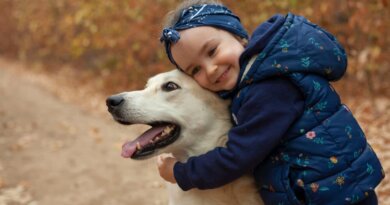My Dogs Used to Get Along—Now They Don’t
Dear Bark: I have two dogs who used to get along so well. Lately, instead of being his usual sweet self, the younger one has become pushy with my nine-year-old senior dog, and it seems to be getting worse. After three years of harmony, why is my younger dog so rude to her, and will he grow out of it?
A family is a dynamic social unit, and interactions between members change—a truism that holds for most, if not all, social species, including dogs. Though what you’re observing is common, it can be surprising to see such a shift in a relationship that used to be so smooth. Any number of things could going on; following are a few possibilities.
Younger dogs who’ve been deferential to older dogs often start to assert themselves as they mature and become more confident and the older dog weakens or declines. Your older dog is likely entering her golden years. Even if she’s healthy, she’s probably a little slower, a little less active and perhaps a little quicker to tire. On the other hand, your younger dog is entering the prime of his life—maturing into his full adult status.
A dog’s developmental stage matters because age is a fundamentally important part of how respectfully one dog is treated by another. Young-adult through middle-aged dogs are usually on the receiving end of deferential behavior from other dogs. (This is a huge generalization, and of course, there are tons of exceptions based on individual personalities.) On the face of it, your dogs certainly fit the general pattern. Your younger dog is demanding more respect and offering less deferential behavior, while your older dog is not able to command the respect she once did.
GET THE BARK IN YOUR INBOX!
Sign up for our newsletter and stay in the know.
Resource guarding is one of the “usual suspects” when dogs in a household have issues with each other. An inclination to hoard things or to defend treasures, which becomes more common as dogs age from adolescent to young adult, may be a precipitating issue in your situation. As the younger one develops possessiveness issues, he may no longer be willing to defer to the older dog, even if he was previously respectful. Challenges over resources are common, and if he’s no longer deferring to her in all cases, his behavior is going to appear disrespectful when actually, he’s just asserting his own interests.
The younger dog may be saying, “Enough already!” Sometimes, what looks like a younger dog being disrespectful is not what it appears. Your younger dog may be acting less deferential because your older dog has been controlling everything and the younger one isn’t having it anymore. It’s not unusual for a younger dog to decide that enough is enough with an older dog who’s not been sharing. When the younger dog rejects the older dog’s privilege (as it were), it can appear that the younger dog is being disrespectful, but it’s really quite reasonable for him to stop his across-the-board deference.
Individual personalities influence how (and if) this age-related dynamic plays out. Age is an important factor in these types of interactions. We commonly see dogs who are two to three years old behaving less respectfully to dogs in their household who are getting older; dogs age seven or more seem to be particularly vulnerable. However, personality also plays a role. In terms of toys, food, space, attention or any other thing of value, some dogs are wholly unconcerned with who gets what, and when. If you have two dogs like that, it’s exceedingly unlikely you’ll have this particular problem. However, if the younger dog cares about his place in the world (or in the family) in general or about access to specific items in particular, he is likely to assert himself. It’s part of the natural canine social order.
Besides the normal role of age in social interactions, other factors could be contributing to the uneasy interactions between your two dogs. Age-related physical problems in an older dog can affect relationships. We know that older dogs experience pain and discomfort due to a variety of conditions; arthritis, hip dysplasia, joint stiffness or a flare-up of an old injury can all cause trouble. Like us when we’re dealing with similar problems, dogs with physical issues may be irritable or short-tempered. Compounding the problem, those physical issues can result in a lack of sleep for the older dog, which will add to her irritability—again, just like us! An irritable older dog may not be as sweet and kind as usual, which will make her seem unpredictable or even scary to the younger dog. It’s only natural that the younger dog acts differently in response, and that can mean behaving less deferentially and more assertively.
Age-related mobility and vision and hearing problems can also contribute to a decline in a previously harmonious relationship. A dog with such issues may not be able to communicate clearly with body language and postures, or may not respond appropriately to the younger dog because of an inability to see or hear that dog’s signals. The resulting miscommunication can lead to both confusion and anxiety for the younger dog, and to behavior that is less respectful, or even downright rude.
What about disrespect to my older dog from dogs outside the household? Changes that happen within a household affect interactions between individuals who have a long-standing relationship. Similar changes can also be observed between older dogs and unfamiliar dogs they meet at the park, on walks or during other casual encounters. It isn’t unusual for young, exuberant dogs to be less respectful of older dogs, but the reasons may not be the same. They can have many causes, including miscommunication about an interest in play, excessive exuberance by the younger dog or an unexpected response by the older dog.
Finally, no, he will not grow out of it. Because your younger dog will continue to mature and your older dog will continue to age, this change in the dynamic between the two of them is unlikely to be temporary.




